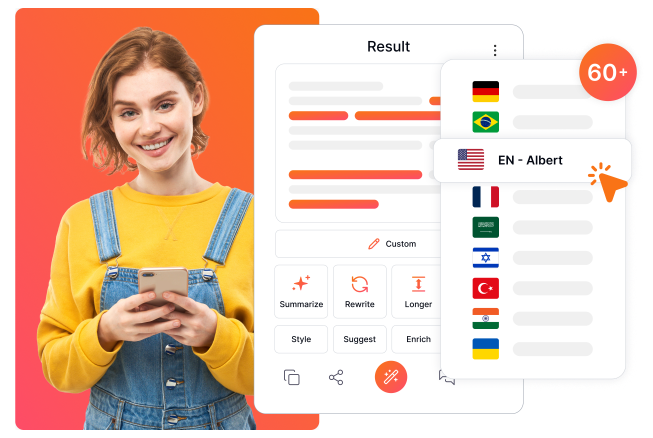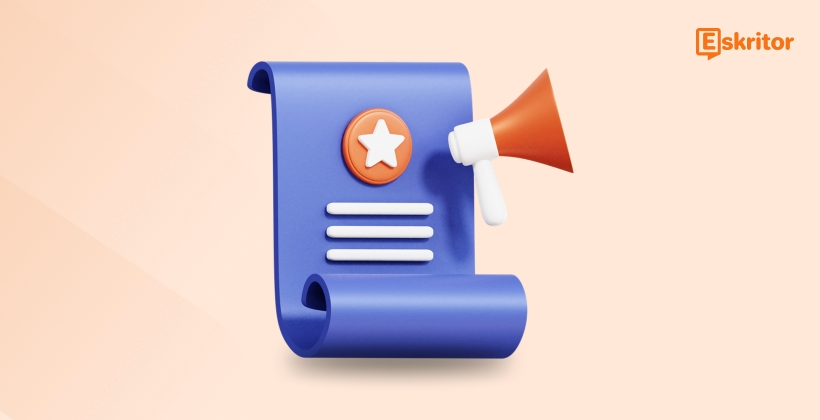The Future of AI Writing Technology Explained
The Future of AI Writing Technology Explained
Blog Article
Effortless Precision with AI Editing Solutions
Synthetic intelligence (AI) publishing engineering has evolved quickly in the last decade, reshaping the way we develop and interact with written content. From syntax modification resources to AI-generated books, the possibilities appear limitless. But where just is that engineering going? Let's explore the innovations, difficulties, and potential potential of AI writer.

How AI Publishing Engineering Works Nowadays
At their key, AI publishing engineering relies on Normal Language Processing (NLP) and equipment learning. These technologies permit versions to know, make, and improve human language. Methods available nowadays master responsibilities like:
1. Material Generation
AI has achieved a point where it can make total blog articles, social media marketing captions, and even media articles. Some types can handle mimicking individual writing models so successfully that distinguishing between AI- and human-written material is now significantly difficult.
2. Grammar and Type Suggestion
AI-powered publishing personnel don't only always check for grammar and spelling mistakes; in addition they provide recommendations to enhance tone, quality, and sentence structure, making complicated writing available to an extensive audience.
3. Belief Evaluation
AI may assess the psychological tone of an item, allowing firms to assess how their communications can resonate with readers. This really is especially useful in advertising and customer interaction.
The Recent Styles in AI Publishing Engineering
A few tendencies are surrounding the following period of AI-powered publishing methods:
• Personalization
AI publishing engineering is increasingly capable of tailoring material to individual preferences. Designs can adapt to a user's publishing design, ensuring the output thinks authentic.
• Multilingual Features
Several AI methods are growing their global reach by providing increased translation characteristics and help for multiple languages.
• Increased Research Characteristics
AI methods today get the capacity to analyze great levels of information and present fact-checked, well-researched writing in moments, simplifying the method for specialists in industries like legislation, finance, and journalism.
What the Future Supports for AI Publishing Technology
1. Increased Imagination
While recent AI is proficient at generating content, their creativity remains limited to styles within their instruction data. Potential AI is not only estimated to assist but to create original, useful operates that concern individual imagination.
2. Smooth Relationship
Imagine an AI that performs alongside you in real-time, finishing your phrases, completing stay edits, and actually brainstorming ideas. AI writing tools may possibly soon become co-authors, enabling imagination to movement uninterrupted.
3. Moral and Accessible Style
With rising matter about plagiarism, misinformation, and bias, designers will work toward more transparent AI teaching techniques and ethical implementation. Future resources will likely provide more comprehensive citations and actions to ensure accountability.
Issues and Criteria
The evolution of AI publishing engineering is not without hurdles, including:
• Moral Dilemmas

Who owns content developed by AI? Just how can we assure AI-generated content is not spreading misinformation? These debates stay unresolved.
• Human-AI Harmony
May AI complement individual imagination or completely replace particular jobs? Many writers and musicians bother about their relevance within an AI-driven world.
• Supply Divide
Not totally all companies or regions have equal usage of cutting-edge AI resources, raising questions about the affect with this technology on global inequality.
Adjusting the Way We Write
AI publishing technology is still in their infancy compared to their potential. Whether you are a student crafting essays, a content marketer targeting certain audiences, or even a novelist seeking enthusiasm, AI tools may continue steadily to revolutionize the writing process. The next decade promises breakthroughs that blend individual ingenuity with equipment intelligence, developing a future wherever writing is more effective, accessible, and impactful than actually before.
Report this page